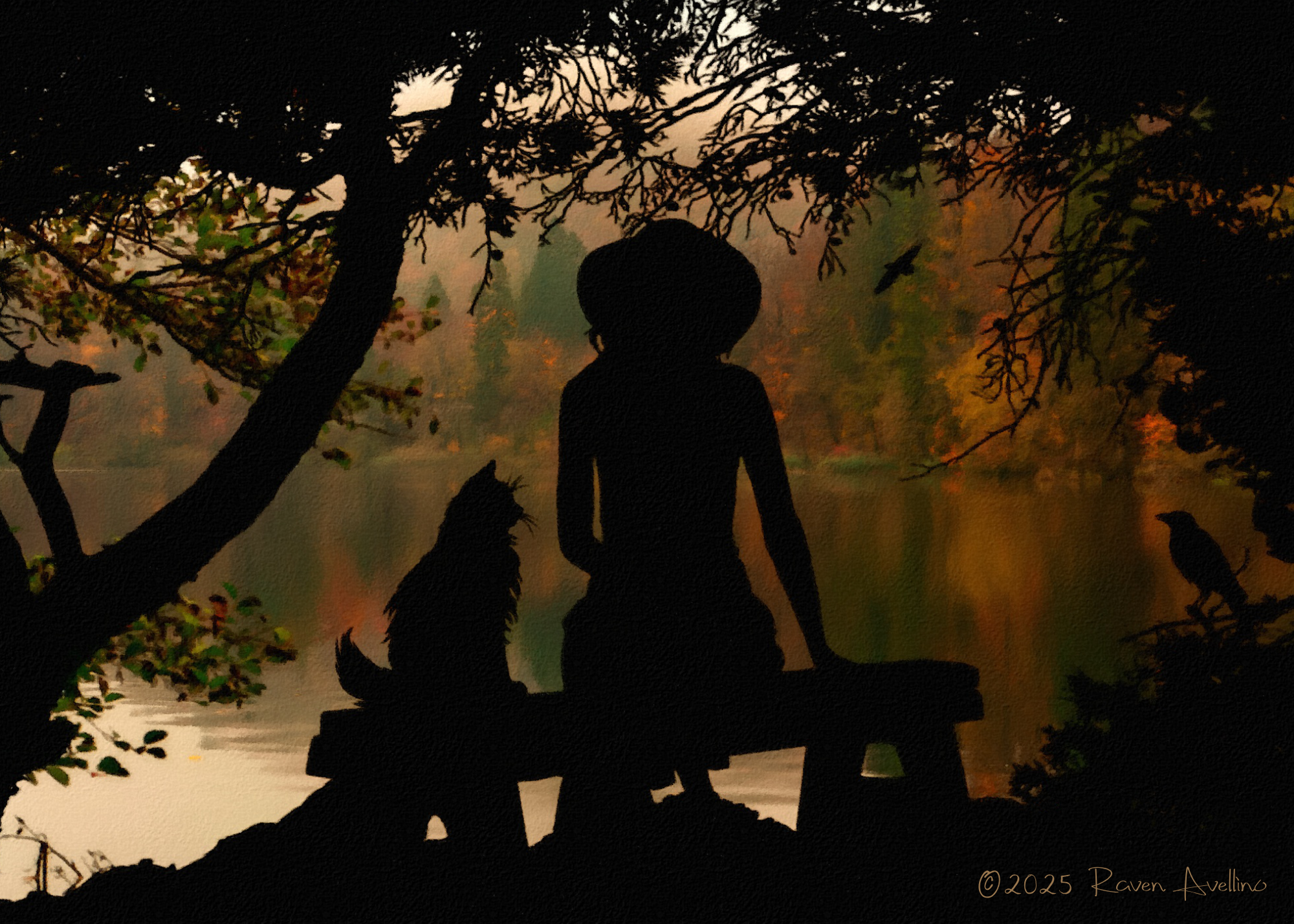The Air Was Clean. I Still Couldn’t Breathe.

When Stillness Isn’t Peace
The Ozark hills smelled like damp earth and woodsmoke, as if the land itself felt wistful and lonely—like the pause between goodbye and letting go. Overhead, hawks traced lazy 8’s through the sky, as the wooded world below lay serene and waiting.
There were always sounds threading through the stillness. Birdsong, a tractor droning somewhere down the road, or less often, a tornado siren—uncanny and slow—dragging itself across the hills like it knew no one was paying attention. I could sit on the porch and hear my own breath mixed with the rustle of leaves shifting in the ancient oaks.
Stillness like that can feel holy. But holiness doesn’t always mean harmony. Stillness can also feel like tension with a silencer pressed against its throat.
And even though the air was clean, I held my breath more often than I knew, trying to filter out a kind of toxicity that had nothing to do with pollution.
The Illusion of Fitting In
Brené Brown wrote, "Fitting in is about assessing a situation and becoming who you need to be to be accepted. Belonging, on the other hand, doesn’t require us to change who we are; it requires us to be who we are."
I spent several years working in a small, rural office tucked deep in the Ozarks. The air quality outdoors was pristine, but the atmosphere inside the building could strip paint. It wasn’t hostile, exactly. Just . . . indifferent. Politeness was random. Warmth was nonexistent. And unless you were part of the unspoken inner circle, your value hovered somewhere between “irritating” and “invisible.”
I didn’t realize it at the time, but I was constantly contorting myself to take up less space. I softened my voice and smiled more. Became less direct. I’d rephrase a sentence three times before saying it out loud. Not because someone berated me if I didn’t, but because I hoped it might make me more palatable. Or at least harder to ignore.
It was rejection, yes, but it was more than that. It was misalignment. No one called me out or shut me down, but I still felt like a loose thread everyone hoped would unravel somewhere else.
Misalignment doesn’t always announce itself. Sometimes it just looks like being left out of every group text for two years. Sometimes it's not being invited to “chainsaw parties”. (An actual thing where people bring their own chainsaws, drink kegs of beer, and take down trees together. I assumed “chainsaw party” was a metaphor. It wasn’t. It was drunk forestry. Easily the most casually terrifying social event I’ve ever been excluded from.)
Eventually, I couldn’t tell if I’d stopped talking, or if no one was listening. It wasn’t that anyone told me to be quiet. It’s just that no one cared when I spoke. So after a while, I stopped bothering.
The Quiet Disappearance of Self
My silence didn’t fall like a curtain. It crept in like fog. It’s easy to lose track of how much you’ve hidden. You don’t realize it until you try to show up fully and find you’ve forgotten how.
My joy dimmed. My creativity flattened. I isolated myself from the world. I let friends go. The part of me that used to spill out in color and story and sideways jokes—gone. I tucked it away for safekeeping. In fact, I quashed it so completely, I still haven’t fully recovered.
To be clear, I didn’t stop being myself. I just stopped sharing myself.
The Sound of Not Being Missed
There’s a certain kind of stillness that feels like sorrow sealed inside your chest. That’s the stillness I lived in.
And the absence of belonging? It isn’t loud. It’s achingly quiet.
Finally, I left. To be fair, I’d disappeared from the place long before I physically departed. No one tried to keep me. No one wished me well. That silence said more than any farewell ever could. And after I was gone, it was like I’d never been there at all.
What unsettled me most wasn’t their lack of goodbye. It was how unsurprising it felt. After all, I’d been practicing my own erasure for years.
Phoenix, and the Difference of Space
Phoenix is Home. The big city doesn’t have the clean breezes of the Ozarks. The sky is brown from dust and smog, and at the height of summer the air feels like it's on fire. But I breathe easier here.
There’s something wonderful about a metropolis that lets you vanish into its vastness without actually disappearing. There’s anonymity—but not invisibility.
And I noticed the shift not just in my life, but on the page. I started writing again, not just to tell my stories, but to express ideas that are meaningful to me. My voice got sharper. Braver. Less apologetic. The characters stopped asking for permission. The stories held space for the woman I used to hide.
The city didn’t just give me breathable air. It gave me the room to write without whispering.
Closing Reflection
Fitting in looks safe from the outside, but it’s the kind of safety that slowly costs you the parts of yourself that matter most. It’s the kind of safety that’s built on silence. On shrinking. On watching your own joy slip through the cracks while you nod and smile and pretend your soul is still intact.
Belonging isn’t about geography. It’s about quiet permission to be your full self. And for me, that permission didn’t come from going home. It came from leaving the place that never really saw me, and returning to one that did. Phoenix didn’t hand me belonging. It just gave me the space to stop bracing for the consequences of being fully myself.
And yet, some part of me still carries the quiet ache of failure—as though leaving meant I hadn’t tried hard enough, hadn’t stuck it out. Even though I know better. Even though now I understand the difference between quiet and peace.
There’s a kind of sadness in that wisdom. But also clarity. I didn’t leave because I stopped loving the clean air. I left because I longed to breathe.

🖤 Source: Brown, Brené. The Gifts of Imperfection. Hazelden Publishing, 2010.

